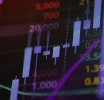Stress Management in Forex: Keeping Your Cool in a Volatile Market

Stress Management in Forex: Keeping Your Cool in a Volatile Market
The Forex market, known as the Foreign Exchange market, is an ever-moving landscape where currencies are traded globally. It is the largest financial market in the world, with a daily trading volume exceeding $6 trillion.
This immense liquidity and round-the-clock trading make Forex inherently volatile. Currency values can shift dramatically within seconds due to geopolitical events, economic indicators, or even sudden market sentiments.
In such a dynamic environment, stress management becomes crucial for traders. The ability to maintain composure and make rational decisions under pressure can be the defining factor between success and failure.
This essay aims to explore the various facets of stress in Forex trading, understand its triggers and impacts, and provide actionable strategies for managing stress effectively.
This immense liquidity and round-the-clock trading make Forex inherently volatile. Currency values can shift dramatically within seconds due to geopolitical events, economic indicators, or even sudden market sentiments.
In such a dynamic environment, stress management becomes crucial for traders. The ability to maintain composure and make rational decisions under pressure can be the defining factor between success and failure.
This essay aims to explore the various facets of stress in Forex trading, understand its triggers and impacts, and provide actionable strategies for managing stress effectively.

Stress Management in Forex: Keeping Your Cool in a Volatile Market
Understanding Stress in Forex Trading
Definition and Types of Stress
Stress in Forex trading can manifest in various forms:
Acute Stress: This occurs due to immediate pressures such as unexpected market movements or missed trading opportunities.
Chronic Stress: Prolonged exposure to market volatility without adequate coping mechanisms can lead to chronic stress.
Eustress: A positive form of stress that motivates traders to stay alert and perform well.
Common Triggers for Stress Among Traders
Several factors can trigger stress among Forex traders:
Market Volatility: Sudden swings in currency prices can create panic.
Financial Risk: The potential for significant losses can weigh heavily on the mind.
Performance Pressure: The constant need to make profitable trades adds to the stress.
Information Overload: The sheer volume of data that needs to be analyzed can be overwhelming.
Psychological Impact of Prolonged Exposure to Market Volatility
Long-term exposure to market volatility without effective stress management can have severe psychological impacts:
Anxiety: Constant worry about market movements and financial losses.
Depression: Persistent feelings of sadness or hopelessness due to repeated failures or losses.
Burnout: Emotional exhaustion resulting from prolonged periods of high stress.
Long-term exposure to market volatility without effective stress management can have severe psychological impacts:
Anxiety: Constant worry about market movements and financial losses.
Depression: Persistent feelings of sadness or hopelessness due to repeated failures or losses.
Burnout: Emotional exhaustion resulting from prolonged periods of high stress.
Techniques for Managing Stress
Implementing Effective Risk Management Strategies
One of the most effective ways to manage stress is through robust risk management strategies:
Stop-Loss Orders: Setting predefined limits on losses can prevent emotional decision-making.
Position Sizing: Allocating only a small percentage of capital per trade reduces potential losses.
Diversification: Spreading investments across various assets minimizes risk.
Importance of Maintaining a Disciplined Trading Routine
Discipline is key to managing stress:
Trading Plan: Having a well-defined trading plan helps in staying focused and avoiding impulsive decisions.
Regular Breaks: Taking periodic breaks from trading screens prevents burnout.
Consistent Schedule: Sticking to a regular trading schedule brings stability and reduces uncertainty.
Utilizing Mindfulness and Relaxation Techniques
Mindfulness and relaxation techniques can be highly beneficial:
Meditation: Regular meditation practice helps in calming the mind and improving focus.
Breathing Exercises: Simple breathing exercises can reduce immediate stress levels.
Physical Activity: Engaging in physical activities like yoga or walking helps release built-up tension.
Building Emotional Resilience
Developing a Positive Mindset and Mental Toughness
A positive mindset is essential for resilience:
Self-belief: Confidence in one’s abilities helps overcome challenges.
Optimism: Viewing setbacks as learning opportunities rather than failures boosts morale.
Learning from Losses and Setbacks Without Emotional Turmoil
Every trader faces losses; handling them constructively is crucial:
Post-trade Analysis: Analyzing what went wrong without self-blame fosters improvement.
Acceptance: Accepting that losses are part of trading reduces emotional burden.
The Role of Continuous Education and Practice in Building Confidence
Continuous learning enhances skills and confidence:
Educational Resources: Utilizing books, courses, and seminars keeps knowledge up-to-date.
Practice Accounts: Using demo accounts for practice helps refine strategies without financial risk.
Conclusion
Stress management is indispensable for success in the volatile world of Forex trading. Understanding the nature of stress, recognizing its triggers, and implementing effective coping strategies are vital steps toward maintaining composure. A disciplined approach combined with mindfulness techniques builds emotional resilience, enabling traders to learn from setbacks positively.
Mastering these skills not only enhances performance but also ensures long-term career sustainability in Forex trading. By adopting a balanced approach towards managing stress, traders can navigate the complexities of the market with confidence and poise.
Forex trading, Stress management, Composure, Volatility, Financial markets
TURNKEY BUSINESS
SPECIAL PRICE
* UNTIL STOCK RUNS OUT









Report
My comments